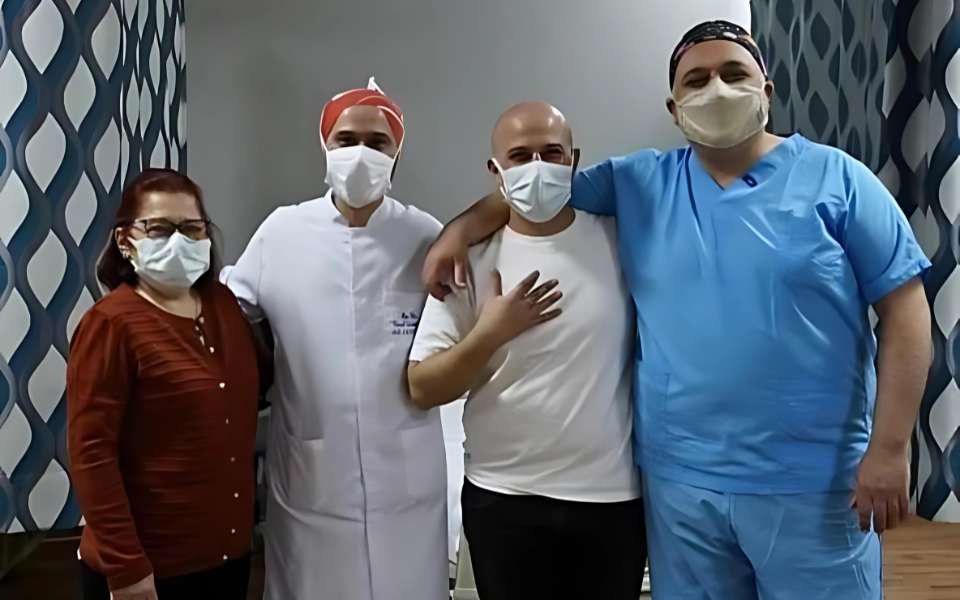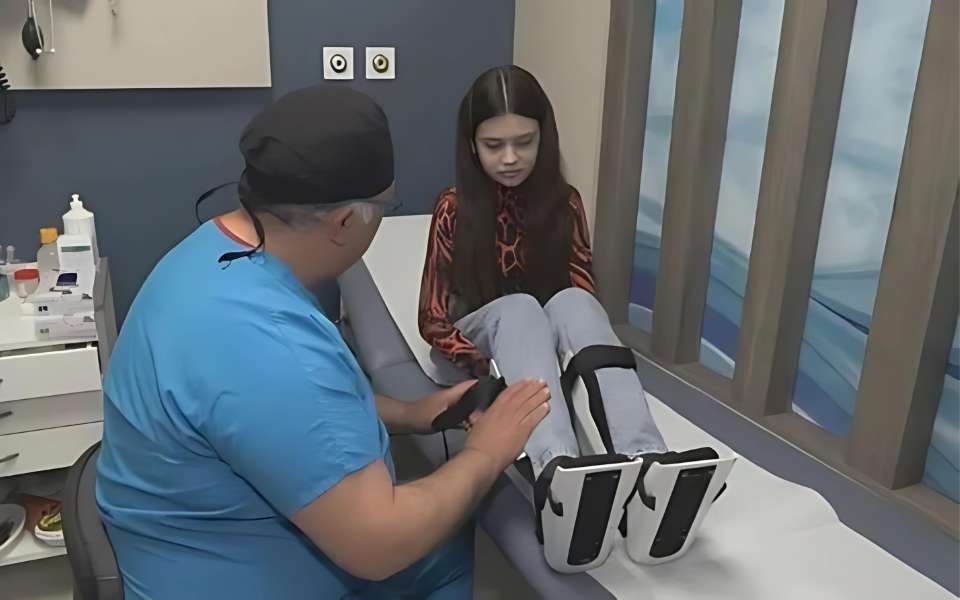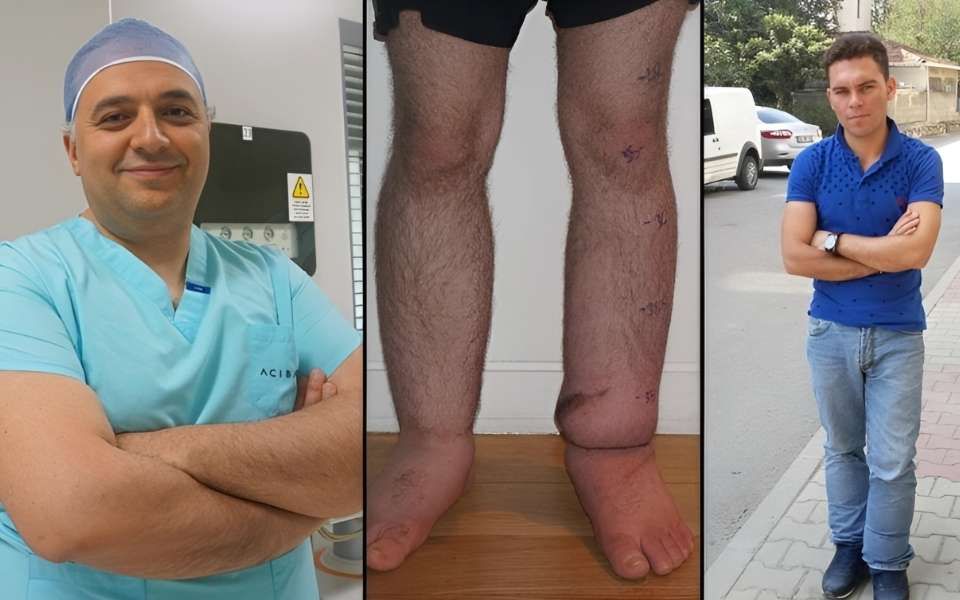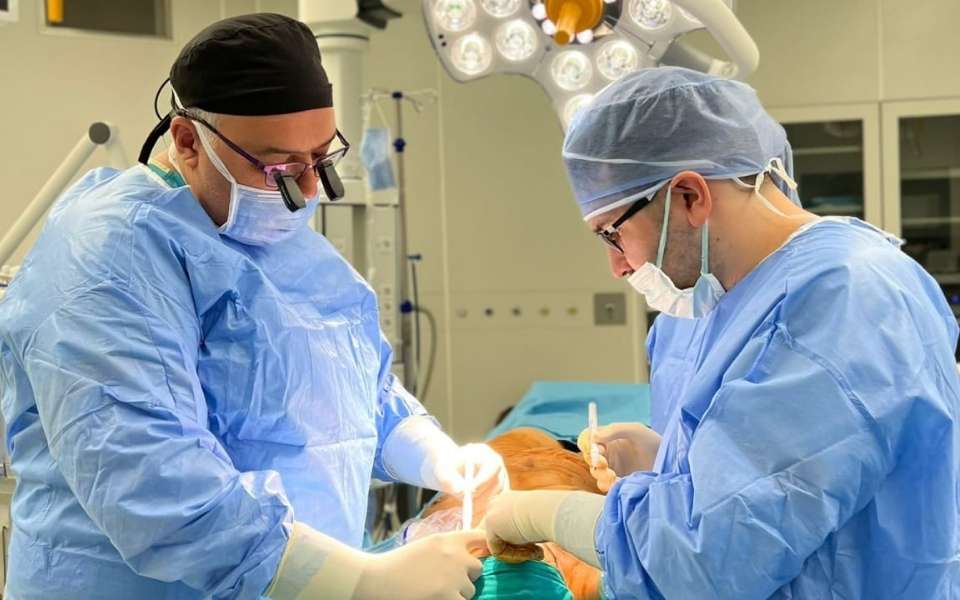While on duty at sea, the index finger of mechanical engineer Berk Altınelli’s right hand was accidentally severed at the middle joint. He was taken to a hospital in Malta, but doctors advised him that his finger could not be reattached and should be discarded. Mr Altinelli brought the finger back to Turkey in a …
While on duty at sea, the index finger of mechanical engineer Berk Altınelli’s right hand was accidentally severed at the middle joint. He was taken to a hospital in Malta, but doctors advised him that his finger could not be reattached and should be discarded. Mr Altinelli brought the finger back to Turkey in a rucksack and underwent a successful operation more than 19 hours later.
Berk Altınelli, a 29-year-old engineer who has been working abroad since 2014, had an accident at sea about two months ago, resulting in the index finger of his right hand being severed at the middle joint. After the initial panic, thanks to his professional training, he managed to find his severed finger with the help of his colleagues and wrapped it in ice. Berk Altinelli was taken by helicopter to one of Malta’s largest public hospitals, where doctors advised him that the finger could not be reattached, should not be kept and should even be thrown away.
Not wanting to give up his finger, the young engineer contacted his uncle, a dentist living in Istanbul, and asked if the surgery could be performed in Turkey. Thanks to the efforts of his mother Alev Altınelli and his uncle, the family reached reconstructive and microsurgery specialist Prof. Dr. Mehmet Veli Karaaltın. Prof. Dr. Karaaltın said that severed limbs usually need to be reconnected within a maximum of eight to nine hours, but said, ‘We take a risk, but I will try.’
The dramatic finger rescue operation between Malta and Turkey, which started with this announcement and lasted for nearly 24 hours, resulted in the successful reattachment of the young engineer’s finger and is a candidate to enter the medical literature.
Altınelli described that day as follows: “My index finger was severed at the joint. Doctors in Malta clearly told me that my finger could not be reattached and I would never be able to use it again. In desperation, I called my uncle and asked him if there was a doctor in Turkey who could perform the operation. At this time, I was very scared. I had to find a plane ticket and there was a pandemic. But I did not give up. When I learnt that the surgery could be performed in Turkey, my hope increased even more.”
The engineer, who managed to find a plane ticket for the next morning, continued as follows despite the difficulties: “In the hotel room, my severed finger in an ice pack waited for the flight time. I had to reach the hospital for surgery in a maximum of 19 hours because they said the tissues would die. However, due to the difficulties related to the pandemic, it took me longer than 19 hours to reach Istanbul and have surgery. The accident happened around 7 pm and the flight was around 9:30 the next morning.”
The next morning, Altinelli boarded the aeroplane with his severed finger in an ice pack in his rucksack. Reflecting on his experience, he offered the following advice: “When I landed, an ambulance was arranged and I was taken directly from the airport to the hospital. I was operated on in the evening. Thanks to my surgeons, my finger is now in place. God willing, we will start physiotherapy. “Entrust me to Turkish doctors” – this is true. The doctors there told me to throw my finger away, that it was pointless to keep it. But I did not lose hope. Thank God, my finger is now in place and I am very happy. The first thing we should do in cases of limb loss, the thing I want everyone to keep in mind, is to put it on ice as soon as possible. The tissue has a much better chance of survival when stored on ice. The chance of reattachment increases. I am the best example of this.”
Prof. Dr. Karaaltın, who performed the operation, explained the operation as follows: “As soon as I heard the time, I told my colleague, who was the patient’s relative, that the time limit of 8-10 hours had been exceeded, and that it could even extend to 24 hours. I said, “We will try, we will do our best.” Some things are irreparable, and the loss of a mechanical engineer’s ability to work is a serious loss; for the country, for himself and for his family. According to textbook knowledge, the probability of success after such a period of time is almost negligible. I took a risk because if we had failed, it would have been a surgical failure for me, even if the family was understanding. But considering the patient’s age and the risks of possible loss, I decided to try. The blood flow of the finger lasted up to 25 hours. I repaired the vein, opened the clamp and waited with great excitement to see if the blood would reach the finger. I was very happy when the finger started to receive blood after opening the clamp.”
Prof. Dr. Karaaltın stated that tissue death in limb loss is due to ischaemia or lack of blood flow. “The finger is a little more resistant in this regard. It has almost no muscle tissue, only connective tissue, skin and bone. This was our only chance. The surgery we performed was of a quality that will go down in the literature.”
Emphasising that Turkey is in a strong position in this field, Prof. Dr. Karaaltın said, “Before the operations, I usually take out my watch and put it on the table. I forget the time. Microsurgery is like that. These are the operations that I enter with great excitement because you are saving a limb. Honestly, I didn’t look at the time, but it was probably around 11 hours. I believe that Turkey is in the best position in Europe in microsurgery. Today’s young colleagues are less interested in microsurgery because it is very challenging and tiring. But I encourage some of them to enter this field because the country needs it.”
Source:https://www.diken.com.tr/kopan-parmagini-maltadan-cantada-getirip-diktirdi/





